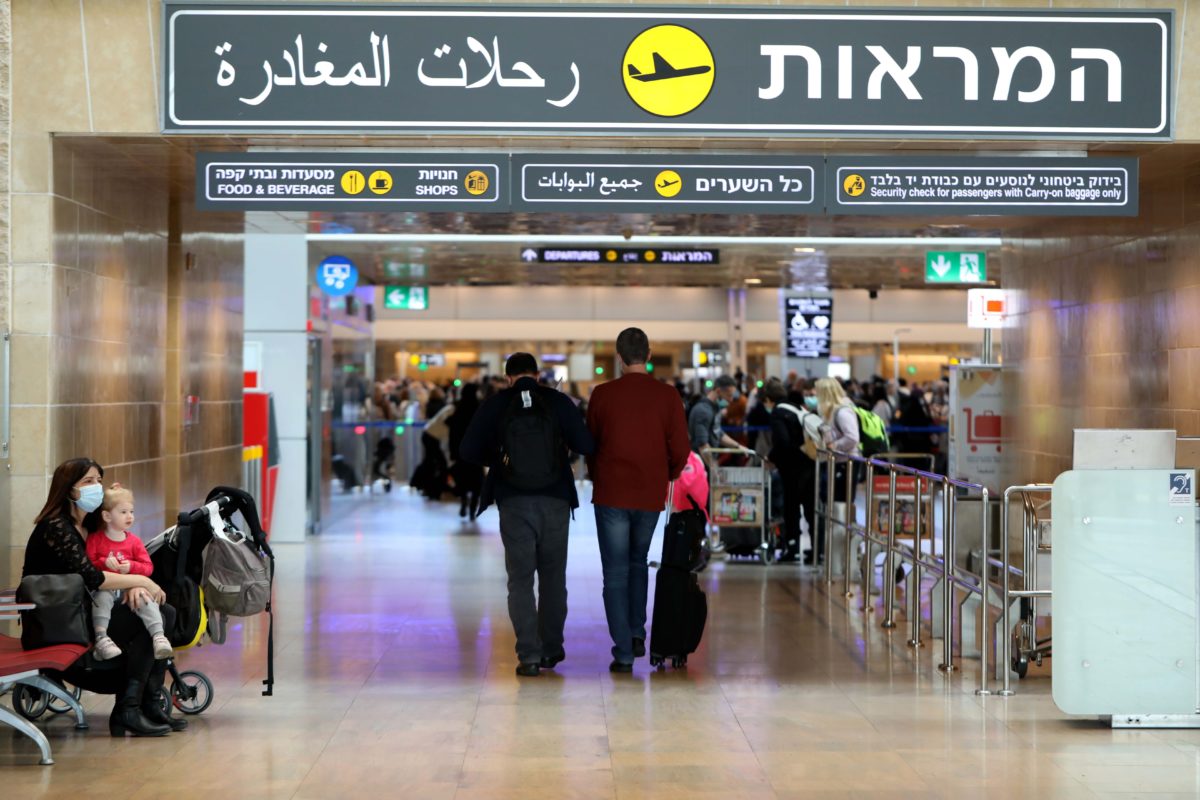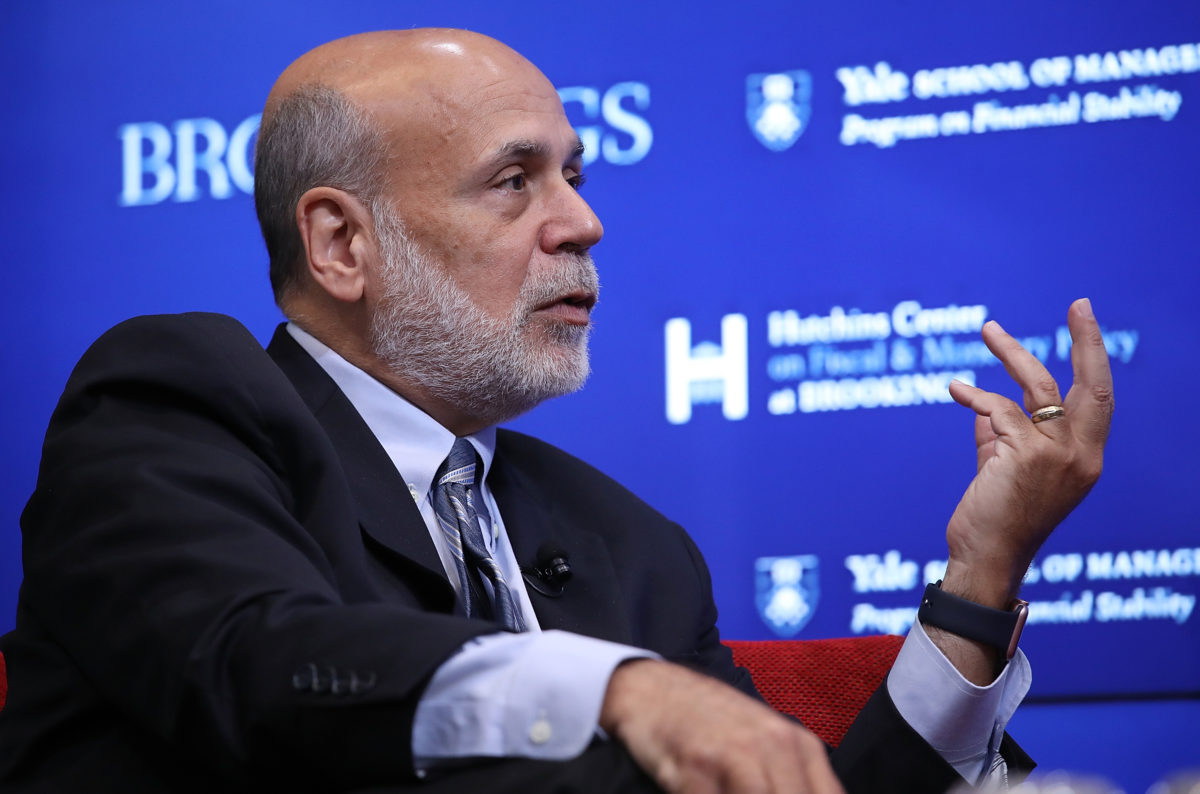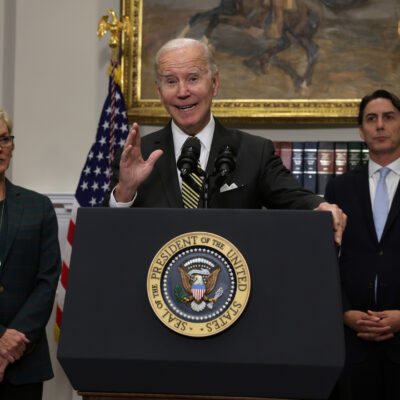Daily Kickoff
👋 Good Monday morning!
Israeli Prime Minister Naftali Bennett is in the United Arab Emirates today for the first official visit of an Israeli premier to the Gulf nation. The visit comes just over a year after the two countries established formal diplomatic ties.
Bennett met with Abu Dhabi Crown Prince Sheikh Mohammed bin Zayed al- Nahyan at his private palace in Abu Dhabi for four hours, with the discussions focusing on economic and regional issues. Iran’s nuclear program, as well as its growing entrenchment in the region, was also covered.
Upon arrival in Abu Dhabi, the Israeli prime minister was received by an honor guard and UAE Foreign Minister Sheikh Abdullah bin Zayed al-Nahyan. Bennett said he was “very excited” to be in the UAE and looked forward to strengthening relations between the two countries.
Bennett was not the only prominent Israeli in Abu Dhabi this weekend. Israeli pop star Omer Adam attended the Abu Dhabi Grand Prix Formula 1 race on Sunday, along with many prominent Jewish Americans.
Then-Israeli Prime Minister Benjamin Netanyahu tried to back out of the Abraham Accords a day before the historic deal between Israel and the United Arab Emirates was signed, according to Axios reporter Barak Ravid, who is releasing snippets of interviews he conducted for his newly-released book Trump’s Peace: The Abraham Accords and the Reshaping of the Middle East.
The revelation comes days after another bombshell dropped by Ravid, who reported that former President Donald Trump was angered by Netanyahu’s overtures to Biden.
“Nobody did more for Bibi. And I liked Bibi. I still like Bibi,” Trump, who sat for interviews in April and July with Ravid, told the journalist. “But I also like loyalty,” he said, noting that Netanyahu was quick to congratulate then-President-elect Joe Biden on his victory. “F*** him,” Trump said of Netanyahu.
On Friday, Netanyahu defended his congratulatory tweet to Biden, which he sent roughly 12 hours after the election was called. “It was important for me to congratulate the incoming president,” the former premier said. “I highly appreciate President Trump’s big contribution to Israel and its security. I also appreciate the importance of the strong alliance between Israel and the U.S.”
visa views
‘No timelines’ on adding Israel to Visa Waiver Program, senior DHS official says

People wait at the departure hall at Ben Gurion International Airport near Tel Aviv, Israel, Nov. 28, 2021.
There are “no timelines announced” on when Israel will be added to the U.S. Visa Waiver Program, Department of Homeland Security Under Secretary for Policy Rob Silvers told Jewish Insider’s Gabby Deutchon Friday, adding that including Israel in the program is a “high priority” for the department. Silvers’s comments follow those made by Israeli Interior Minister Ayelet Shaked, who said in November that she expects Israel to be added to the program by 2023. Shaked discussed the issue with Homeland Security Secretary Alejandro Mayorkas and Silvers in Washington last month.
Strong support: “We strongly support Israel’s efforts to join the Visa Waiver Program. We can’t think of a more exciting result than welcoming Israel into the program,” said Silvers. “To do that, it will have to meet all the requirements for program participation.” Senior officials from DHS and Israel’s Interior Ministry have been in negotiations about how Israel can comply with the legal requirements to join the program, which would allow Israelis to travel to the U.S. without a visa.
Reciprocity rules: One key issue is reciprocity, which requires Israel to allow all American citizens — including those of Palestinian descent — to enter Israel. “We will continue to work with Israel towards fulfilling the reciprocity requirements for Americans seeking to enter or transit to Israel,” said Silvers, who added that the provision requires “equal treatment of all Americans.”
Too many rejections: The percentage of rejected Israeli visa applicants also remains too high, presenting another challenge. “We’ve been working actually very closely and productively with both our embassy and in Jerusalem, and also with our Israeli government counterparts to understand what might be driving their visa refusal numbers, and if there are ways that together, we can drive those numbers down in an appropriate way,” Silvers explained.
Nonprofit security: Silvers has been a vocal supporter of the Nonprofit Security Grant Program, which gives nonprofits funds to use for security needs. DHS did not request a specific funding amount for the program in this year’s budget, and Silvers declined to say whether he believes the current amount should be increased. “I think when I left the department, it was like $25 million or something like that. So it’s really grown, and we’re constantly evaluating whether we should advise further growth,” said Silvers, who also held roles at DHS during the Obama administration.
paying tribute
Obama Presidential Center auditorium to be named after Elie Wiesel

Buchenwald concentration camp survivor Elie Wiesel shakes hands with U.S. President Barack Obama after his speech during their visit of former Buchenwald concentration camp on June 5, 2009, near Weimar, Germany.
The auditorium at the Obama Presidential Center in Chicago will be named after Nobel Peace Prize laureate and Holocaust survivor Elie Wiesel, as part of an effort to honor “civil rights and social justice leaders whose significant contributions to society advanced justice and equality in America,” Jewish Insider’s Melissa Weiss reports.
The ‘world’s conscience’: The space was named by Obama Foundation board member Penny Pritzker and her husband, Dr. Bryan Traubert. “Elie Wiesel endured the unimaginable evils of the Holocaust and emerged as the world’s conscience in the struggle for human rights,” Pritzker said in a statement. “His unrelenting activism and prolific writing after bearing witness to such horrors is a call to each of us to never become indifferent. A more just and peaceful world is always possible.”
Obama tribute: In 2009, Obama and Wiesel, accompanied by then-German Chancellor Angela Merkel, visited the Buchenwald concentration camp, where Wiesel was imprisoned during the final months of the war. “Elie was not just the world’s most prominent Holocaust survivor, he was a living memorial,” a statement from the then-president read upon Wiesel’s death in July 2016. “After we walked together among the barbed wire and guard towers of Buchenwald where he was held as a teenager and where his father perished, Elie spoke words I’ve never forgotten — ‘Memory has become a sacred duty of all people of goodwill.’ Upholding that sacred duty was the purpose of Elie’s life.”
Agree to disagree: Obama and Wiesel shared a warm relationship, despite a deep disagreement over the Obama administration’s approach to Iran. Wiesel was a vocal opponent of the 2015 Joint Comprehensive Plan of Action and attended former Israeli Prime Minister Benjamin Netanyahu’s address to a joint session of Congress that year, in which the Israeli leader warned against entering into a nuclear agreement with Tehran. “Whatever differences they had,” Wiesel’s son, Elisha, told JI, “my father and President Obama shared a deep and abiding love for this country.”
taking aim
Congress takes aim at Iranian drone issue as concerns mount

A person is seen at the site targeted by aerial attacks on December 05, 2021 in Sana’a, Yemen.
Observers and U.S. partners inside and outside the Middle East have raised alarms in recent weeks about the growing threat of weaponized drones used by Iran and its proxies to attack U.S. troops and partner nations — and Congress appears to be taking notice, Jewish Insider’s Marc Rod reports.
Crackdown: On Friday, a bill clarifying that the creation and proliferation of weaponized drones and drone technology is covered under the U.S.’s conventional weapons sanctions on Iran sailed through the House Foreign Affairs Committee by a bipartisan voice vote. The bill was first introduced less than two weeks ago.
Upper chamber: The sanctions approach is also likely to find support in the Senate. “[Drones] should be part of any sanctions conversation with Iran,” Sen. Marco Rubio (R-FL), the top Republican on the Senate Intelligence Committee, who also sits on the Foreign Relations Committee, told Jewish Insider last week.
Not enough: In what several senators characterized as another move to counter to Iranian drones, a bipartisan group of senators last week blocked efforts to stop a sale of $650 million in air-to-air missiles to Saudi Arabia. But Saudi Arabian officials said last week that they need hundreds more Patriot missiles to maintain their defenses against the drones. “That’s a big danger,” Rubio said, of the Patriot missile shortage. “Whatever it takes to defeat any sort of Iranian proxies from presenting a danger not just to them but to others in the region and the world.”
Falling behind: Some observers in Israel say the U.S. has not been aggressive enough in its response to the drone threat. “If some militias use Iranian drones to attack American targets like the Al-Tanf base [in the Syrian desert near the borders of Iraq and Jordan] or American bases in Iraq, they should shoot back. It’s simple,” Professor Ephraim Inbar, president of the Jerusalem Institute for Strategy and Security, told JI last week. “Once Americans were good cowboys, they are no longer so.”
Window of opportunity: Yoel Guzansky, a senior research fellow at the Institute for National Security Studies who also served in Israel’s National Security Council, told JI that the drone issue is “a chance for Israel to offer its assistance” to Saudi Arabia, though the chances of that happening “are very low right now.”
raising alarm
Former antisemitism envoys say U.S. needs domestic monitor

Menorahs are lit during a party on the 6th night of Hanukkah in New York City.
The four former State Department special envoys to monitor and combat antisemitism agreed on Friday that the U.S. needs a domestic official tasked with monitoring and combating domestic antisemitism, in addition to the current position that handles antisemitism abroad, Jewish Insider’s Marc Rod reports.
Coming together: Gregg Rickman, Hannah Rosenthal, Ira Forman and Elan Carr, the four ex-officials who have held the post since its creation in 2004, spoke together last week at a webinar organized by the Anti-Defamation League, Hadassah, the Jewish Council for Public Affairs, The Jewish Federations of North America and an array of other Jewish organizations. The webinar was designed to highlight the special envoy’s role amid delays in confirming the Biden administration’s nominee for the post, Holocaust historian Deborah Lipstadt. It was the first time all four ex-envoys have spoken together.
Many hats: Carr said that the Trump administration had tasked him with taking on some domestic responsibilities in addition to his foreign duties — although budgetary constraints made that difficult. He argued that the position should be “dual-hatted,” with a joint posting at the State Department and the White House so that the envoy can address both foreign and domestic antisemitism. “They can bring the same focus domestically in the United States, because we need it domestically in the United States,” Carr said.
Doubling up: Forman argued that a separate domestic position should be established, given that the State Department envoy office is chronically under-resourced, and is already unable to tackle the full spectrum of foreign issues. “I think we’ve got to figure out a way to have some kind of position that is dealing accordingly with domestic antisemitism,” Forman said. “There’s too much even to do just in the foreign policy region. But we have a rising problem of antisemitism here.”
Whoops: Rosenthal also lamented that that the State Department envoy was upgraded to ambassador rank — requiring Senate confirmation — last year. “I always opposed this becoming an ambassador rank because of exactly why we’re on this call,” Rosenthal said. “We would have had Deborah in place… I never cared about what my title was, nor did anyone in another country. So all this did — by changing the language — was make it a political issue, and that’s what we’re facing now, and I’m very sorry to see it.”
Bonus: The House Foreign Relations Committee, in a party-line vote, also approved a bill establishing an office and special envoy to monitor and combat Islamophobia.
Worthy Reads
😩 Iran Impasse: The New York Times’s Julian E. Barnes, Ronen Bergman and David E. Sanger examine the recent tensions between the Bennett government and the Biden administration over how to move forward with nuclear talks with Iran. “But at the heart of the tensions between Israel and the United States is the fundamental disagreement over how to stop the Iranian program. It is not a new argument: The two allies fought bitterly over the 2015 agreement, which Israel opposed and President Barack Obama signed. More recently, they have disagreed about the wisdom of Israeli sabotage of Iranian facilities, which Mr. Bennett’s government believes has set back the program, and which some in the United States argue only encourages the Iranians to build back the nuclear enrichment facilities with more efficient, up-to-date equipment.” [NYTimes]
🗳️ The Right Stuff? In a wide-ranging interview with the Wall Street Journal’s Barton Swaim, former Commentary editor Norman Podhoretz reflects on his support for former President Donald Trump, the evolution of the Republican Party and the 2020 election. “The term ‘culture war’ has been thrown around for 30 years, but Mr. Podhoretz takes the martial metaphor seriously: ‘We’re in a war, and it’s a war to the death. Now they actually admit it. They used to pretend. Not anymore. “Dissent” was the real patriotism — so being against America meant you were for America, if you remember all that. Now they’re happy to say what they think.’ The left wants to win, he says, but ‘I’m not sure anymore what our side wants. The right, as I used to understand it, no longer exists. So you’ve got one very clear side, and one very muddled side.’” [WSJ]
🍝 Foodie Frenzy: The New Yorker’s Lauren Collins profiles the rise and fall of former New York Times cooking columnist Alison Roman, who has pivoted to producing videos, writing newsletters and finding new ways to connect with fans after her departure from the newspaper. “It’s hard, even for Roman, to put a concise label on what she does. She’s always a cook, often a writer, occasionally a performer, and never a pushover, even when she’s getting in her own way. ‘In a world where everyone feels the need to be excessively polite, she’s excessively herself,’ David Cho, a business adviser who consults on her projects, told me. Roman made her name as a food columnist and the host of cooking videos for Bon Appétit and the Times… She is home cooking’s most relentless polemicist, pairing a preference for high-acid, crunchy, creamy, herby, briny, chili-flaky food with salty takes.” [NewYorker]
🍽️ Chef’s Table: CNN’s Noah Sheidlower and Radhika Marya spotlight what they describe as “a Jewish culinary renaissance” experienced by kosher restaurant owners around the U.S., who have adapted or created their menus to appeal to kosher and non-kosher diners alike. “There’s no need to feel that if you keep kosher, you should automatically feel that you are somehow hardened or disadvantaged because you can’t fully experience a particular dish or kinds of cuisine,” [Baltimore restaurant owner Lara] Franks said. “Almost anything can have a kosher translation.” [CNN]
Around the Web
😠 Family Feud: A disagreement between Sen. Ron Wyden (D-OR) and his son Adam, a hedge fund manager, over tax law has spilled into public view, despite the elder Wyden’s efforts to keep the tensions under wraps.
❌ Cancellation Policy: New York City Mayor-elect Eric Adams has canceled 10 fundraising events scheduled for the coming weeks, including one hosted by controversial PR exec Ronn Torossian.
📦 A Helping Hand: Chabad-Lubavitch emissaries distributed aid to communities hit hard by the deadly tornadoes in Kentucky.
🎤 Saturday Night Live: Freshman Rep. Ritchie Torres (D-NY) spoke about his conviction in his pro-Israel stance despite its “heavy political price,” in an address to the Israeli-American Council’s annual conference in South Florida on Saturday night.
🐖 Pareve Pig? The introduction of plant-based “pork” products has yet to win over many in the Muslim and Jewish communities, who refuse to consume the products even though their ingredients do not contain animal products.
⛪ Church and State: Anti-Defamation League CEO Jonathan Greenblatt penned a letter to the editor to The New York Times arguing in support of the state of Maine in a recent Supreme Court case involving taxpayer funds going to religious education providers.
👨 Filling In: Morgan Abraham, a member of the Board of Trustees for the Jewish Community Foundation of Southern Arizona, was appointed to fill a vacancy in the Arizona House of Representatives’ 10th District.
🇮🇷 Regional Ruckus: Gulf Arab states are seeking to engage with Iran and in some cases are supporting a return to the 2015 nuclear agreement, concerned that failed efforts to rein in Tehran’s nuclear program will have drastic effects in the region.
🛑 No-Go: Israel added the U.K. and Denmark to the list of countries its citizens are not allowed to travel to, over concerns about the Omicron coronavirus variant, even as a new Israeli study found that a three-shot Pfizer regimen was effective against the variant.
🇦🇪 Destination Dubai: The Wall Street Journal reports on Dubai’s emergence as a hub for individuals looking to relocate during the pandemic, due in part to its high vaccination rates and incentives for foreigners looking to do business in the Emirate.
☢️ Careless Confidence? Iranian officials say the country’s economy would survive even if talks collapse with the U.S. and other world powers to revive the 2015 nuclear deal, The Wall Street Journal reports.
🗳️ Ballot Box: Local Palestinian elections set for this week will provide a test of whether voters believe Hamas is adequately able to root out corruption, amid concerns that the Palestinian Authority is on the verge of collapse.
🚓 Security Details: Former Israeli Prime Minister Benjamin Netanyahu’s wife and sons will lose their security detail, following a vote by a parliamentary committee on Sunday.
👑 Beauty and Grace: India Harnaaz’s Sandhu was crowned Miss Universe at the contest in Eilat last night.
🗞️ Transition: Jake Simon was named the editor of the U.K.’s Jewish Chronicle.
💍 Mazal Tov: Council for a Secure America’s Jennifer Sutton and Vidrovr co-founder Daniel Morozoff-Abezgauz got engaged over the weekend in Miami.
👶 Baby on Board: David Pasch, executive vice president at Targeted Victory, and his wife, Danielle, welcomed a daughter on Tuesday. h/t Playbook
Pic of the Day

(Israeli Government Press Office (GPO) / Handout/Anadolu Agency via Getty Images)
Israeli Prime Minister Naftali Bennett (left) welcomed by Abu Dhabi Foreign Minister Abdullah bin Zayed al-Nahyan (right) with an official ceremony in Abu Dhabi, United Arab Emirates on Sunday night.
Birthdays

Former Federal Reserve Board Chairman Ben Bernanke answers questions at a conference with former U.S. Treasury Secretary Timothy Geithner and former U.S. Treasury Secretary Hank Paulson at the Brookings Institution September 12, 2018, in Washington, D.C. (Photo by Win McNamee/Getty Images)
Former chairman of the Federal Reserve, now a distinguished fellow in residence at the Brookings Institution, Ben Shalom Bernanke turns 68…
Retired chairman and CEO of Loral Space & Communications, Bernard L. Schwartz turns 96… Former New York State senator, Suzanne “Suzi” Oppenheimer turns 87… California-based real estate developer active in the revitalization of downtown San Jose, he is a former co-owner of the Oakland Athletics, Lewis Wolff turns 86… Real estate developer and a minority-owner of the Minnesota Vikings, David Mandelbaum turns 86… Senior rabbi emeritus of Temple Israel of Hollywood, John Rosove turns 72… Executive chairwoman and chief media officer of Eko, Nancy Tellem turns 69… Chair of the Interdisciplinary Center for the Study of Poverty and Social Exclusion at the University of Haifa, Roni Strier turns 69… Investor, writer and adjunct professor at Columbia University, Joel Greenblatt turns 64… Former assistant secretary for management at the U.S. Department of the Treasury, David F. Eisner turns 64… Member of the U.S. House of Representatives since 2017 (D-MD), Jamin Ben “Jamie” Raskin turns 59… Dean of NYC-based Bard Graduate Center, Peter N. Miller turns 57… Chairman and CEO of Fontainebleau Development, Jeffrey M. Soffer turns 54… Co-founder and principal of The Lead PR, LLC, Jeffrey W. Schneider turns 53… Mayor of New Rochelle, N.Y., since 2006, Noam Bramson turns 52… Comedian and actor, known as Wheeler Walker, Jr., Benjamin Isaac Hoffman turns 47… Florida Commissioner of Agriculture and Consumer Services, Nikki Fried turns 44… Head of communications at Google Assistant, Riva Litman Sciuto turns 36… President emerita at UCLA Faculty Women’s Club, Bette Billet…









